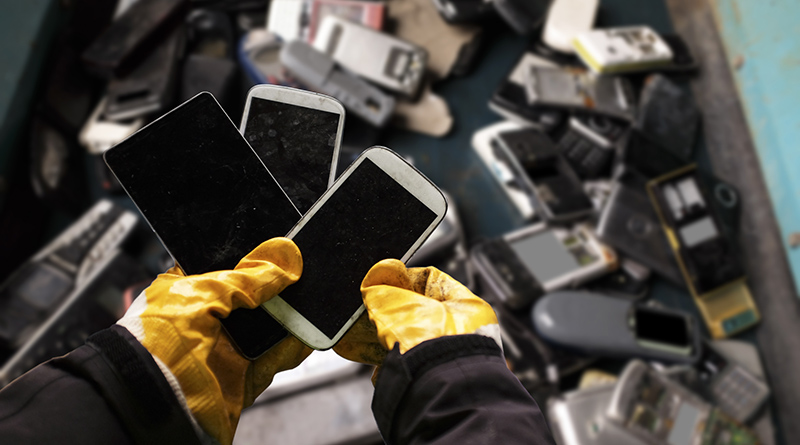Where does all that waste go?
I wrote last week about Black Friday, the culmination of an unholy week of consumerism, and the fact that relentless advertising campaigns tended to obscure the continuation of the UK’s personal debt crisis.
But for many people the fact that the high streets and shopping centres seemed unusually quiet indicated that this US import had simply not taken off here and that perhaps the culture of overspending was on the wane.
This is demonstrably untrue. Though shops did suffer a drop in footfall numbers in comparison to last year, spending online reached £1.4 billion up 11.4% from 2016. According to research carried out by professional services network, Price Waterhouse Cooper, this is not a generational trend – all age groups are increasingly shopping online with 60% of over 65’s doing their shopping though their devices.
That we are a nation online is hardly news, but the latest usage figures from the Office of Communications (OFCOM) are revealing. The proportion of adults in the UK with broadband connection stands at 83% whilst the proportion of adults who either own or use a mobile phone stands at 94%.
Just think about ubiquity of iPhones. Apple has introduced three new models in the last quarter of this year alone: there were two iPhone 8’s launched in September and the hugely hyped iPhone X appeared early in November. The global reaction to the latter was startling. People queued outside stores the world over in order to buy, at £999 or equivalent, the most expensive smartphone ever. Which is obviously great news for Apple – whose share price increased on the back of projected sales. According to the Guardian it’s now worth now worth over $868bn, closer to becoming the world’s first trillion-dollar company.
In the UK, our enthusiasm for electronic and electrical goods continues to increase. In 2016 households purchased approximately 7.7 billion pounds worth of household appliances. But as electronics writer Graham Pitcher points out: the UK is a throwaway society when it comes to consumer electronics devices – we ‘bin’ 23.5kg of e-waste per person per year.
The passion for smartphones, and in particular the desire to own the latest model, seems to me (along with the marketing trick of the century – bottled water) to be emblematic of a throwaway culture which is having a profound impact upon us and our planet.
The success of the BBC’s Blue Planet II has highlighted the impact of plastic in the oceans but what is possibly less well known is that, according to the United Nations, global electronic e waste has reached record high levels with projected quantities expected to reach 50 million metric tonnes by 2018. In the last ten years or so, toxic waste from the UK, found in household items such as mobile phones, televisions, dishwashers and washing machines, has been transported across the world.
The fact is that rapid and seemingly inexorable technological change is combined with insatiable consumer demand for the newest product. When you factor in planned obsolescence (the manufacture of products with a limited lifespan) and a less than rigorous approach to recycling then waste levels are bound to increase.
The impact of all this is most keenly felt in what has been traditionally described as the developing world. The UN Environment Programme (UNEP) research programme has found that West Africa is a major destination for waste. And as Asia develops as both the major manufacturer and market for electrical and electronic equipment, so its e waste problem intensifies.
China’s transformation from a largely agrarian based economy into an industrialised super power has created a burgeoning middle class with a disposable income. They are eager to consume the products until recently unavailable to them. According to journalist Katrina Yu the country’s recycling system is struggling to keep up. In the meantime, Professor Jiang Jiangguo of Beijing’s Tsinghua University told Wu, China’s increasingly wealthy and image conscious consumers are buying the latest goods, and trashing them, faster than ever before.
So what we have is truly global problem. To paraphrase Tisha Brown, Oceans Campaigner for Greenpeace UK, we shouldn’t buy things because they are bargains. Stuff has a price, and our oceans, forests and wildlife are paying their share of that price, even when we aren’t.


